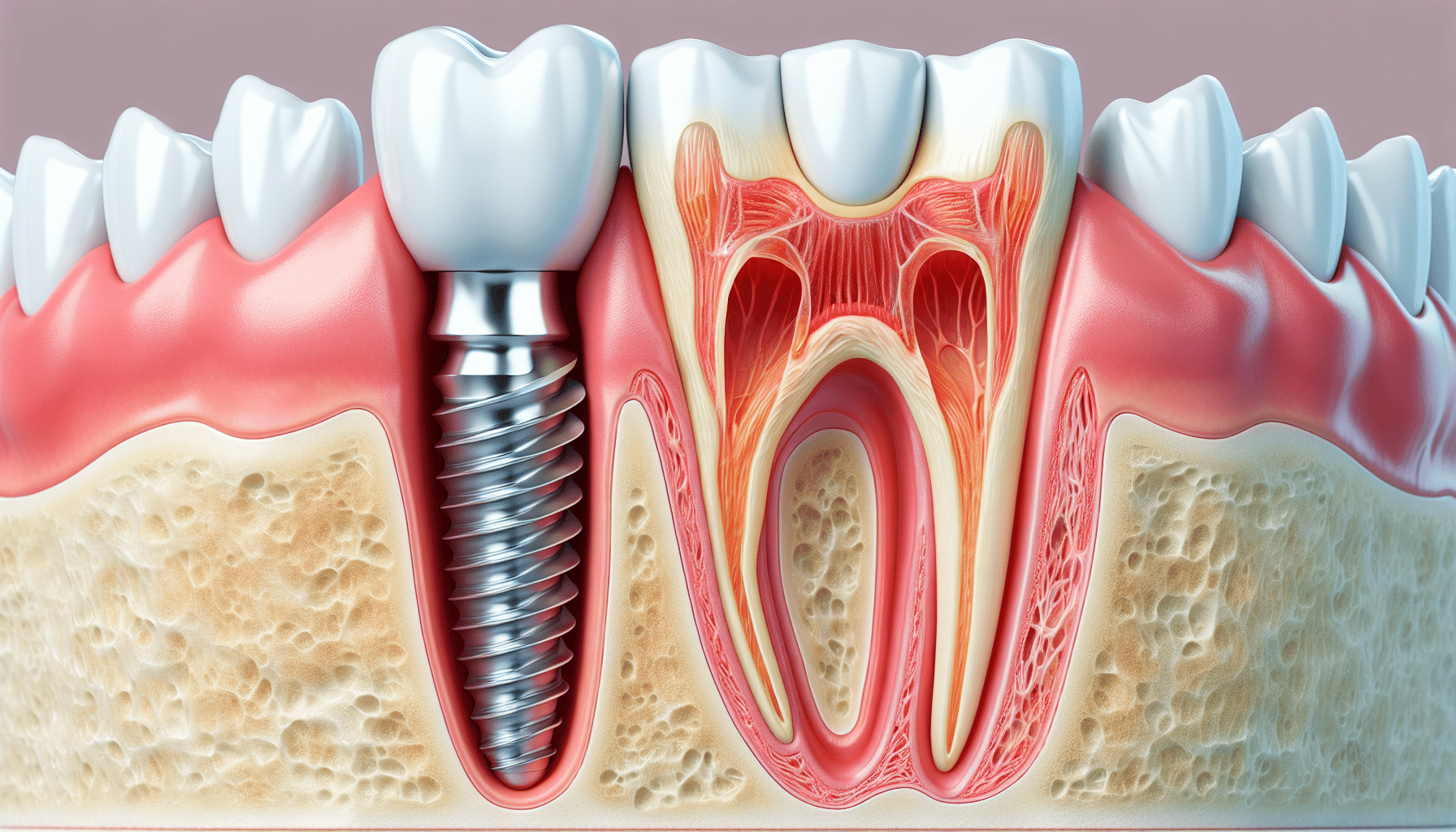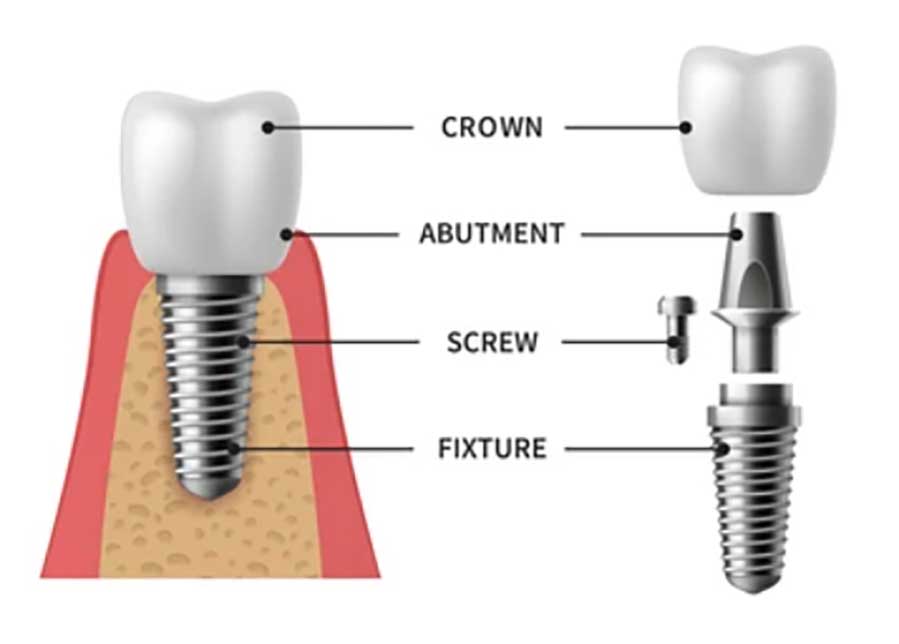Dental Clinic Johnstown OH What Are Dental Implants? Types, Benefits, and More
Dental implants have emerged as a well-liked selection for individuals seeking a long-term solution to tooth loss. One important side of understanding dental implants includes their effect on adjacent teeth. This is particularly necessary for guaranteeing the health and longevity of the whole dental structure.
When a dental implant is placed, it mimics the function of a natural tooth root. By doing so, it helps preserve the integrity of the encompassing bone structure. Natural teeth depend on a balanced, interconnected system for help, and dental implants can contribute positively to that dynamic. The stability provided by the implant permits for higher distribution of bite forces, which can prevent undue stress on adjacent teeth.
Pediatric Dentist Sunbury OH The Best Dental Implant Services
In cases the place a tooth is missing, the neighboring teeth may shift into the vacant area. This shifting can result in misalignment and varied other problems. By inserting a dental implant, the risk of this shifting is lowered, because the implant acts as a placeholder that preserves the natural alignment of surrounding teeth. This preventive impact is crucial for long-term oral health and function.
Another essential consideration is bone loss. When a tooth is misplaced, the jawbone within the area can begin to deteriorate because of an absence of stimulation. Dental implants help prevent this bone loss by providing the required stimulation to the jawbone, very like a natural tooth root would. This preservation of bone not only supports the implant itself but in addition contributes to the soundness of adjacent teeth.
The type of material used in dental implants, typically titanium, has a unique property of osseointegration, meaning it fuses with the bone over time. This integration provides a sturdy foundation for the artificial tooth whereas guaranteeing that the implant doesn’t negatively have an result on surrounding constructions. As the implant integrates, it creates an surroundings that contributes positively to the health of the adjacent teeth.

Regular dental check-ups play an important role in monitoring the influence of dental implants on adjacent teeth. Professional assessments may help establish any issues which will come up, ensuring prompt remedy and sustaining the health of the entire dental arch. These evaluations may embrace X-rays to check for bone density and the overall condition of the implant and surrounding teeth.
Mono Implants Pataskala OH Affordable Dental Implants: A Guide
Oral hygiene practices are vital for people with dental implants. Proper brushing and flossing habits not solely contribute to the longevity of the implant but in addition make positive that adjacent teeth remain wholesome. Food particles and plaque that accumulate across the implant can cause problems, including peri-implantitis, an inflammatory condition that may affect surrounding teeth and tissues.
The positioning of dental implants can influence the health of adjacent teeth. If an implant is positioned at an angle or not correctly aligned, it may result in elevated pressure on neighboring teeth. This misalignment may trigger wear and tear on adjacent enamel, doubtlessly resulting in cavities or other dental points. Therefore, the talent and expertise of the dentist performing the implant process are paramount in achieving a profitable end result.
In some situations, further procedures may be essential to arrange the encompassing area for an implant. Bone grafting or sinus lifts may help create a greater surroundings for the implant. While these procedures are aimed at enhancing the positioning for the implant, additionally they serve to protect the health of adjacent teeth by making a more stable basis.
Dental Care New Albany OH Dental Implants for Seniors: Considerations and Benefits

As dental know-how evolves, advancements in implant methods lead to higher outcomes. Improved imaging methods and computer-aided design enable for more exact placements that reduce risk to adjacent teeth. With these advancements, the probability of complications that might arise from improperly positioned implants diminishes significantly.
Post-operative care additionally plays a important role in guaranteeing that adjacent teeth remain unaffected. Patients should adhere to the dentist's instructions relating to diet, oral hygiene, and follow-up visits. Neglecting these tips could lead to issues that influence not solely the implant but also the neighboring teeth.
Dental Care Columbus OH Are Dental Implants Permanent? What You Should Know
In conclusion, dental implants, when positioned accurately and cared for correctly, have the potential to boost the health of adjacent teeth somewhat than detract from it. They preserve alignment, stimulate bone development, and supply a safe basis that supports the whole dental structure. Understanding how dental implants affect adjacent teeth emphasizes their importance as a long-term tooth replacement solution. With continuous advancements in technology and strategies, the combination of dental implants into restorative dentistry is changing into more and more profitable, making certain healthy and useful smiles for years to come.

- Dental implants prevent adjacent teeth from shifting into the gap created by a missing tooth, helping to maintain up correct alignment in the mouth.
- The rebuilding of the jawbone via an implant can stimulate surrounding teeth and maintain them wholesome by providing necessary bone density that might in any other case diminish.
- Adjacent teeth benefit from the stabilization that dental implants provide, decreasing the chance of wear and tear from misalignment during chewing.
- Implants can shield adjacent teeth by performing as a framework, which might distribute chunk forces evenly across the dental arch instead of putting undue stress on neighboring teeth.
- When positioned appropriately, dental implants decrease the chance of gum disease which might have an result on adjacent teeth by sustaining a clear and wholesome gum line.
- The presence of an implant can facilitate an improved oral hygiene routine, as it eliminates the need for bridgework that could trap food particles around adjacent teeth.
- Regular dental check-ups can reveal how well the implant integrates with surrounding structures, ensuring ongoing health for adjacent teeth.
- Implants can prevent the natural means of bone resorption that occurs after tooth loss, positively impacting the steadiness and longevity of adjacent teeth.
- The use of dental implants may scale back the necessity for more invasive procedures in the future, providing a long-term solution that maintains the structure of the entire dental arch.
- Successful integration of an implant into the dental arch enhances overall oral function, usually leading to improved confidence and oral health for adjacent teeth.undefinedHow do dental implants affect adjacent teeth?
What impression do dental implants have on the alignment of adjacent teeth?
Dental implants typically prevent the shifting of adjacent teeth, serving to to take care of correct alignment. This stability can scale back the danger of developing bite issues over time.
Can dental implants trigger harm to close by teeth?
When placed correctly by a qualified skilled, dental implants mustn't injury adjacent teeth - Pediatric Dentist Columbus OH. However, improper placement or insufficient planning may lead to complications
Orthodontics Galena OH Dental Implants Cost Breakdown: What You Need to Know
Do dental implants require any particular care relating to adjacent teeth?
Maintaining good oral hygiene is important. Surrounding teeth ought to be brushed and flossed regularly, and routine dental check-ups will help ensure that each the implants and adjacent teeth remain healthy.

Will dental implants their website influence the health of my surrounding teeth?
Dental implants can enhance the health of surrounding teeth by distributing bite forces evenly, reducing wear and tear. Additionally, they will prevent bone loss within the jaw, which might affect adjacent teeth.
Family Dental Clinic Hartford OH The Benefits of Dental Implants: Why Choose Them?
Are there any long-term effects of dental implants on nearby teeth?
Long-term, dental implants may help protect the health of adjacent teeth by preventing shifting and potential gum points, in the end contributing to raised oral health overall. - Dentist Condit OH
Can gum problems arise round adjacent teeth my sources after getting implants?
If proper dental care is uncared for, gum issues could develop around each the implants and adjacent teeth. Following post-operative care directions is essential to reduce these risks.
Dental Center Galena OH Frequently Asked Questions About Dental Implants
How do dental implants examine to bridges by means Extra resources of adjacent teeth?
Dental implants are typically beneficial as they don’t require alteration of adjacent teeth, unlike bridges, which necessitate reshaping of close by teeth for help. (Dental Clinic Galena OH)
Can I nonetheless get cavities in adjacent teeth if I have dental implants?
Yes, adjacent teeth can nonetheless develop cavities if not correctly cared for. Dental implants themselves can not get cavities, however they require vigilant hygiene practices to guard surrounding natural teeth.
What is the success rate of dental implants in relation to surrounding teeth?
The success rate of dental implants is excessive, nevertheless it largely is dependent upon the standard of the process and ongoing care. Well-maintained implants typically result in better outcomes for adjacent teeth as properly.
Comments on “Premier Dental Galena OH Frequently Asked Questions About Dental Implants”